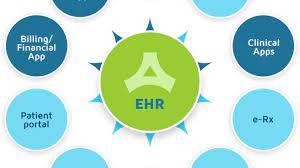AI Revolution in Government
The AI Revolution in Government: Unlocking Efficiency and Public Trust As the AI boom accelerates, it’s essential to explore how artificial intelligence can streamline operations for government and public sector organizations. From enhancing data processing to bolstering cybersecurity and improving public planning, AI has the potential to make government services more efficient and effective for both agencies and constituents. AI Revolution in Government. The Role of AI in Public Sector Efficiency AI presents significant opportunities for government agencies to optimize their operations. By integrating AI-driven tools, public agencies can improve service delivery, boost efficiency, and foster greater trust between the public and private sectors. However, with these advancements comes the challenge of bridging the AI skills gap — a pressing concern as organizations ramp up investments in AI without enough trained professionals to support its deployment. According to a survey by SAS, 63% of decision-makers across various sectors, including government, believe they lack the AI and machine learning resources necessary to keep pace with the growing demand. This skills gap, combined with rapid AI adoption, has many workers concerned about the future of their jobs. Predictions from Goldman Sachs suggest that AI could replace 300 million full-time jobs globally, affecting nearly one-fifth of the workforce, particularly in fields traditionally considered automation-proof, such as administrative and legal professions. Despite concerns about job displacement, AI is also expected to create new roles. The World Economic Forum’s Future of Jobs Report estimates that 75% of companies plan to adopt AI, with 50% anticipating job growth. This presents a crucial opportunity for government organizations to upskill their workforce and ensure they are prepared for the changes AI will bring. Preparing for an AI-Driven Future in Government To fully harness the benefits of AI, public sector organizations must first modernize their data infrastructure. Data modernization is a key step in setting up a future-ready organization, allowing AI to operate effectively by leveraging accurate, connected, and real-time data. As AI automates lower-level tasks, government workers need to transition into more strategic roles, making it essential to invest in AI training and upskilling programs. AI Applications in GovernmentAI is already transforming various government functions, improving operations, and meeting the needs of citizens more effectively. The possibilities are vast: While AI holds immense potential, its successful adoption depends on having a digital-ready workforce capable of managing these applications. Yet, many government employees lack the data science and AI expertise needed to manage large citizen data sets and develop AI models that can improve service delivery. Upskilling the Government Workforce for AI Investing in AI education is critical to ensuring that government employees can meet the demands of the future. Countries like Finland and Singapore have already launched national AI training programs to prepare their populations for the AI-driven economy. For example, Finland’s “Elements of AI” program introduced AI basics to the public and has been completed by over a million people worldwide. Similarly, AI Singapore’s “AI for Everyone” initiative equips individuals and organizations with AI skills for social good. In the U.S., legislation is being considered to create an AI training program for federal supervisors and management officials, helping government leaders navigate the risks and benefits of AI in alignment with agency missions. The Importance of Trust and Data Security As public sector organizations embrace AI, trust is a critical factor. AI tools are only as effective as the data they rely on, and ensuring data integrity, security, and ethical use is paramount. The rise of the Chief Data Officer highlights the growing importance of managing and protecting government data. These roles not only oversee data management but also ensure that AI technologies are used responsibly, maintaining public trust and safeguarding privacy. By modernizing data systems and equipping employees with AI skills, government organizations can unlock the full potential of AI and automation. This transformation will help agencies better serve their communities, enhance efficiency, and build lasting trust with the people they serve. The Future of AI in Government The future of AI in government is bright, but organizations must take proactive steps to prepare for it. By unifying and securing their data, investing in AI training, and focusing on ethical AI deployment, public sector agencies can harness AI’s power to drive meaningful change. Ultimately, this is an opportunity for the public sector to improve service delivery, support their workforce, and build stronger connections with citizens. Like Related Posts Salesforce OEM AppExchange Expanding its reach beyond CRM, Salesforce.com has launched a new service called AppExchange OEM Edition, aimed at non-CRM service providers. Read more The Salesforce Story In Marc Benioff’s own words How did salesforce.com grow from a start up in a rented apartment into the world’s Read more Salesforce Jigsaw Salesforce.com, a prominent figure in cloud computing, has finalized a deal to acquire Jigsaw, a wiki-style business contact database, for Read more Service Cloud with AI-Driven Intelligence Salesforce Enhances Service Cloud with AI-Driven Intelligence Engine Data science and analytics are rapidly becoming standard features in enterprise applications, Read more








